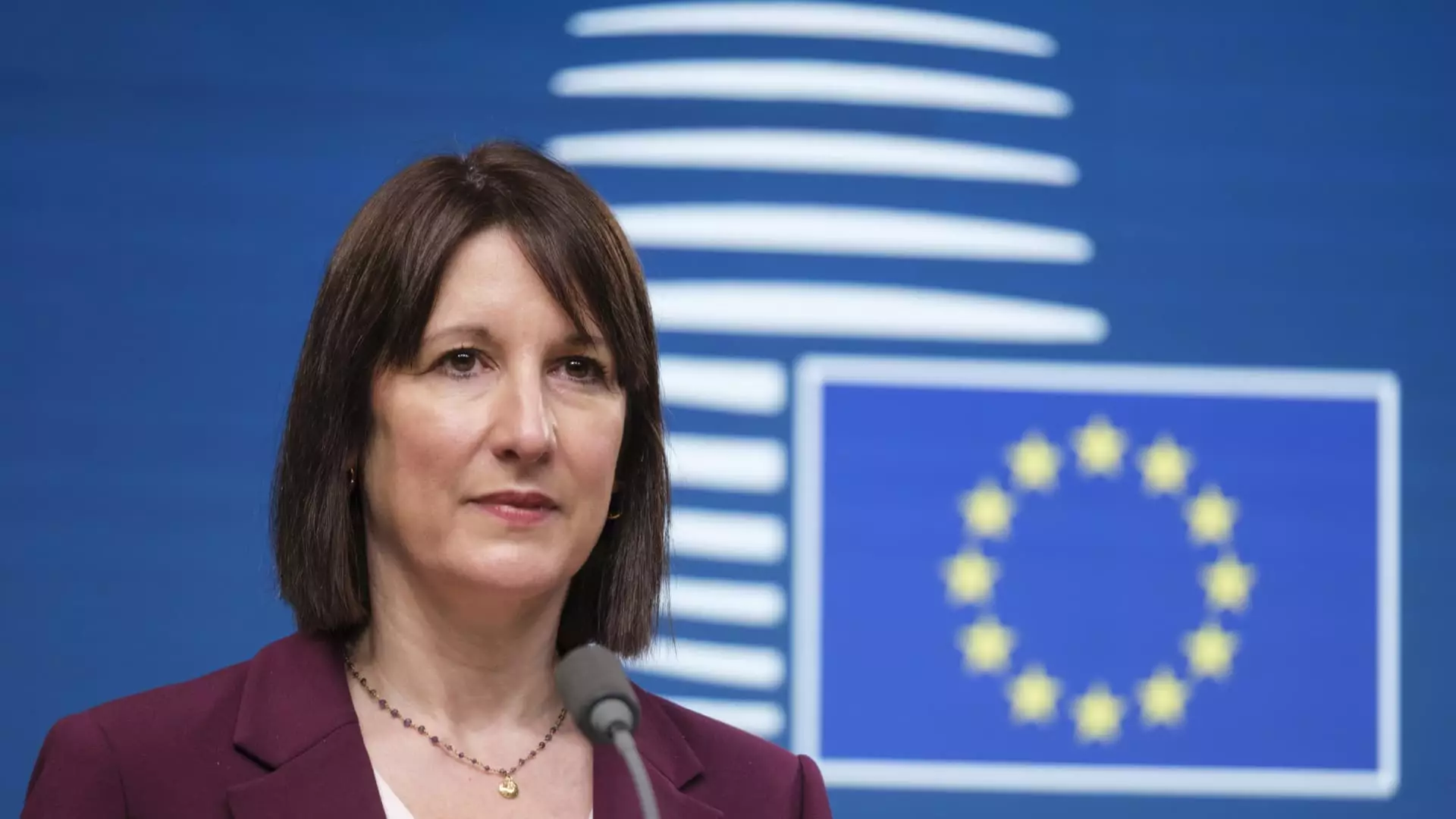In an unprecedented turn of events, the political climate in Europe is transforming even before President-elect Donald Trump steps foot in the White House. The United Kingdom and the European Union, long-standing partners turned wary adversaries following Brexit, are now engaging in dialogues to fortify their positions against potential U.S. policy shifts under the incoming administration. Chancellor Rachel Reeves of the U.K. recently traveled to Brussels to meet with her EU counterparts—a significant meeting, marking the first of its kind since the U.K.’s departure from the Union in 2020. This encounter reflects a growing recognition that collective strength may be necessary to navigate a world riddled with uncertainties, particularly regarding trade and defense dynamics.
The atmosphere during these discussions in Brussels was underscored by shared concerns regarding global stability. Eurogroup President Paschal Donohoe expressed optimism that the meeting would pave the way for numerous future consultations, emphasizing the inherent shared values and interests between the U.K. and the EU. Observers note that pivotal issues such as support for Ukraine, trade liberalization, and economic partnerships were at the forefront of Chancellor Reeves’ agenda. While specific outcomes of the conversations remain elusive, there is a palpable eagerness to enhance transnational collaboration.
Chancellor Reeves, while mindful of the delicate nature of her discussions, made it clear that her intent was not to initiate negotiations or set firm demands but rather to lay the foundational stones for mending the trust that has eroded in the years following Brexit. Her dialogue indicates a concerted effort to rebuild bonds that have been strained and suggests a willingness to work collaboratively in response to external pressures.
With Trump’s comments about potentially imposing tariffs and scaling back U.S. support for Ukraine looming in the backdrop, there is an increasing urgency amongst EU leaders. The cautionary perspective from a senior EU diplomat hints at a strategic necessity for the EU and U.K. to synchronize their external approaches, especially when engaging with the U.S. It is widely understood that a cohesive response to U.S. protectionism, should it manifest under Trump, could safeguard the interests of both the U.K. and EU.
Ignacio García Bercero, an experienced figure in EU trade negotiations, articulated the need for a strategic dialogue between the U.K. and the EU. His assertions underscore a shared understanding that prioritizing a harmonious approach to U.S. engagement could avert unnecessary friction. This sentiment is particularly relevant given the potential risks associated with a more isolationist U.S. foreign policy.
The recent political dynamics signal an evolving narrative for U.K.-EU relations. The transition to a Labour government, which advocates for rebuilding trust with Europe, adds another layer of complexity to this already intricate relationship. Chancellor Reeves’ approach acknowledges the tumultuous aftermath of Brexit while signaling an intent to foster trust rather than promote discord.
The upcoming interactions, including Prime Minister Keir Starmer’s meetings with EU leadership, will likely focus on enhancing cooperation and addressing mutual concerns. The emphasis on collaboration could prove crucial in the face of unpredictability, as the U.K. navigates its post-Brexit identity in a redefined European landscape.
Though it is too early to ascertain the tangible results from these initial meetings, there is a renewed spirit of cautious optimism. Both sides appear poised to explore avenues of cooperation while carefully managing their geopolitical interests. The inherent challenges present in rebuilding relationships and trust are substantial, yet the will to engage constructively offers a glimmer of hope.
As the world watches, the course of UK-EU relations in this new chapter will be closely scrutinized, especially as it unfolds in tandem with the unpredictable landscape ushered in by Trump’s presidency. In a rapidly shifting geopolitical environment, the importance of unity and collaboration among traditional allies becomes increasingly vital—an adage that both the U.K. and EU seem keenly aware of as they prepare for the future.

Leave a Reply